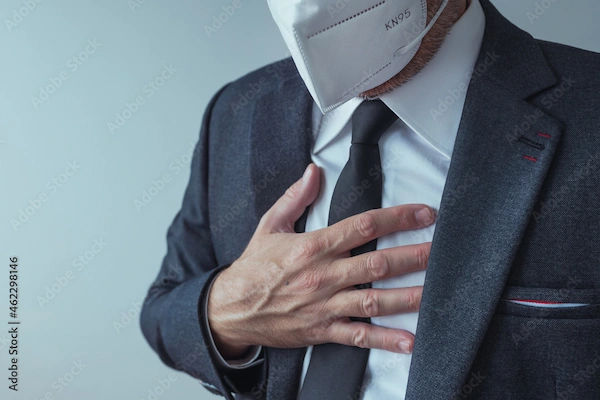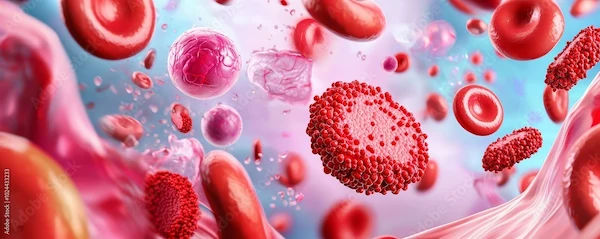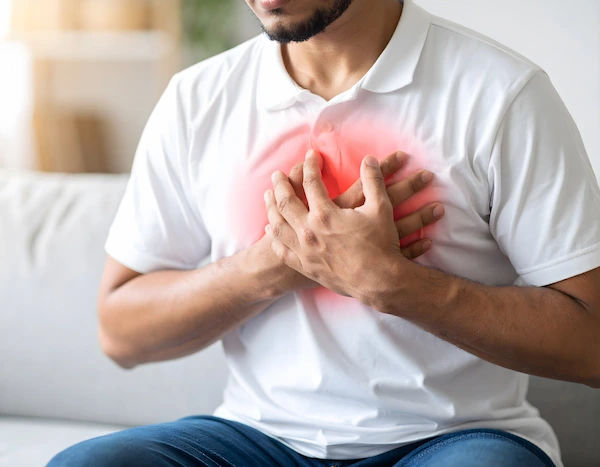- male
- 60 Years
- 22/01/2025
Can someone help me understand what LVDD Grade 1 means? My dad, whos 60, just had an echo test done and we're trying to wrap our heads around this LVDD thing. Is there anything specific we should be concerned about or keep an eye on? Any advice would be appreciated.
Answered by 1 Apollo Doctors
grade 1 left ventricular diastolic dysfunction is normal and common in prople over 60..However some risk factors include hypertension, type 2 diabetes, obesity and coronary heart disease..salt restricted diet ,dash diet and regular aerobic exercises is advised to the patient.
Dr. Ibrahim Suggests...
Consult a Cardiologist
Answered 04/07/2025
3
0


Ask Apollo
AI powered Health Chatbot
-
Understanding LVDD Grade 1
- LVDD Grade 1, or mild diastolic dysfunction, indicates the heart's left ventricle has a slight difficulty relaxing and filling with blood. It's often an early sign of heart function changes.
-
Specific Concerns for a 60-Year-Old
- Common concerns include fatigue, shortness of breath, or mild exercise intolerance. It may slightly impact daily activities but is often manageable with lifestyle adjustments.
-
Monitoring and Follow-Up
- Watch for worsening symptoms like increased breathlessness or swelling. Regular follow-ups with echocardiograms are crucial to monitor heart function.
-
Lifestyle and Management Recommendations
- Encourage a heart-healthy diet, regular exercise, and blood pressure control. Discuss potential medications with a cardiologist if needed.
-
When to Seek Medical Advice
- Seek prompt medical attention for symptoms like severe chest pain, significant shortness of breath, or sudden weight gain.
-
Relevant Medical Specialties
- Cardiologists and primary care physicians play key roles in managing LVDD, ensuring comprehensive care and monitoring.
Recommended next steps
Consult a Cardiologist
Answered 20/08/2025
1
0
More Cardiology Health Queries
View allI'm a bit concerned about my recent echo report. It shows that I have mild tricuspid regurgitation. The doctor mentioned it can't be reversed, but is there any way to keep it from getting worse? I really want to make sure it stays stable and doesn't progress. Any advice would be appreciated.
Tricuspid regurgitation is a condition where the tricuspid valve in the heart does not close properly, causing blood to leak backwards. While it may not be possible to reverse tricuspid regurgitation completely, there are ways to manage and prevent its progression. One common approach is to manage the underlying cause, such as heart failure or pulmonary hypertension, which can help reduce the severity of the regurgitation. In terms of medication, your doctor may prescribe ACE inhibitors, diuretics, or beta-blockers to help manage symptoms and prevent further damage to the heart. It is important to follow your doctor's recommendations and attend regular follow-up appointments to monitor the condition. Additionally, lifestyle changes such as maintaining a healthy weight, exercising regularly, and avoiding smoking can also help prevent the progression of tricuspid regurgitation.
Answered by 1 Apollo Doctors
I'm trying to understand more about my recent test results. It mentioned something like mild mitral stenosis with trivial regurgitation and that my left atrium is dilated. Plus, there's something about the anterior leaflet of the mitral valve being mildly thickened, and the mitral orifice measuring 2.22 square centimeters. They also noted trivial mitral regurgitation with Doppler. What does all this mean for my heart health? Should I be worried? Any advice on what steps I should take next would be really helpful.
echo and angiography is advised,, cardiac opinion
Answered by 1 Apollo Doctors
I'm really concerned because I've been having this pain in my upper back and on the left side of my chest for the past two days. I'm trying to figure out what might be causing it. Could it be something serious? What should I do about it?
Guvava (Guava) Fruit and Fever _General Information_ 1. _Guvava's nutritional benefits_: Rich in vitamin C, antioxidants, and fiber. 2. _No direct link to fever increase_: Guvava fruit does not inherently increase fever. _Potential Considerations_ 1. _Natural sugars_: Guvava contains natural sugars, which may affect blood sugar levels. 2. _Digestive comfort_: If you're experiencing fever, your digestive system might be sensitive; guvava's high fiber content could potentially cause discomfort. _Precautions_ 1. _Eat in moderation_: Consume guvava fruit in moderation to avoid any potential digestive discomfort. 2. _Stay hydrated_: Drink plenty of fluids, including water, clear broths, or electrolyte-rich beverages. 3. _Monitor your fever_: Keep track of your temperature and seek medical attention if your fever worsens or persists.
Answered by 1 Apollo Doctors
Disclaimer: Answers on Apollo 247 are not intended to replace your doctor advice. Always seek help of a professional doctor in case of an medical emergency or ailment.




